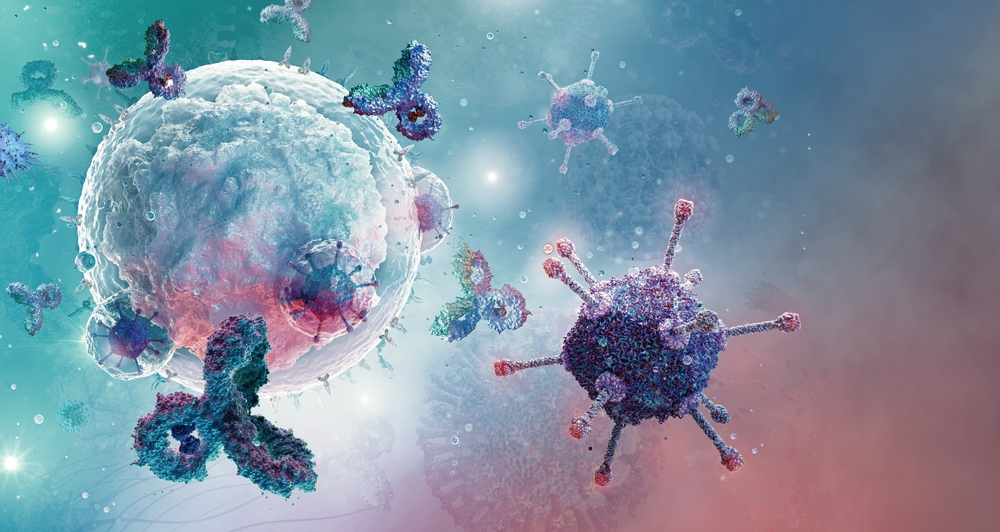让我们保持联系
与我们保持联系,了解医疗保健和肠道健康领域的最新动态!
From birth to old age, the gut microbiota play a significant role in our immune system’s maturation, function and regulation. Trillions of bacteria, viruses, fungi, and parasites co-evolve in relationship with our immune system participating in defensive responses to potential antigens.3,12
Probiotics can influence the gut microbiota, affecting their composition, structure and metabolites. They also share many of the same functions as our microbiota, with their ability to affect immune function.8,11,12
Probiotics are defined by The Food and Agriculture Organization/World Health Organization (FAO/WHO) Working Committee on Probiotics as “live microorganisms which when administered in adequate amounts confer health benefits on the host.” 10
Preclinical and clinical trials show activation and modulation of multiple immune and inflammatory mechanisms by probiotic bacteria, enhancing the function of the mucosal and systemic immune systems.4,8
The intestinal mucosal immune system
The gut has evolved a complex and effective mucosal immune system that provides structural, chemical and immunologic barriers to antigens in the lumen.
Gut microbiota and probiotics closely interact with the gut mucosa and its associated immune structures and functions, known as the intestinal mucosal immune system (IMIS).
The IMIS consists of 3 primary parts:1,8,11,16
The complex interplay between these three zones, our gut microbiota and supplemental probiotics generates immune effects locally and systemically.
Intestinal epithelium: the gatekeeper
The complex environment within the gut presents our body’s immune system with continuous challenges. The space of the lumen is functionally outside the body. A fine line of intestinal epithelial cells (IECs) separating us from potential antigens, supplied by:1,12
The IECs and associated tight junctions, covered with mucous, are the interface between the outside and inside of our bodies. This fine line of cells is a sensory interface, a site of communication between the contents of the lumen and lamina propria/GALT.8
The maintenance of epithelial integrity is essential for health. Damage increases permeability and allows excessive bacteria, bacterial fragments, and products to pass from the lumen to adjacent tissue.5,15
Intestinal barrier dysfunction can trigger systemic inflammation and tissue damage. Inflammatory chronic diseases are associated with barrier impairment, including allergy, autoimmune diseases, inflammatory bowel diseases, irritable bowel syndrome, neurodegenerative diseases, and metabolic diseases.4,5
Key actions of probiotics suggested by preclinical and clinical studies
The lumen 1,6,8,9,10
The epithelium1,5,6,9,10,15
Lamina propria & GALT 1,5,6,8,9,10,15
Probiotics and systemic immunity
Preclinical and clinical studies suggest that probiotics influence immunity systemically.
As discussed, oral supplementation of probiotics stimulates the production of IgA synthesis and distribution in the intestinal mucosal immune system. This effect is also observed distally in the bronchus and mammary glands.8
Researchers postulate that cytokines and T cells drain from the GALT into the blood. From the blood, they move into the liver and spleen and ultimately regulate systemic immune responses.15
Restoring resilience with probiotics
The hallmark of a healthy microbiome and associated immune processes is resilience. In response to disruption, such as antibiotic therapy or pathogenic bacteria, it should have the capacity to recover.4
Multiple and ongoing stressors, such as a western-style diet, can erode our microbiome and IMIS resilience – resulting in dysbiosis, intestinal barrier dysfunction, and systemic effects.4 Probiotic supplementation is emerging as a key therapy for treating intestinal and systemic immune dysfunction and its health effects, helping to rebuild health and resilience.
REFERENCES

SAMe is a compound best known for its antidepressant action. In this article, we seek to touch on the significant body of evidence that supports

Ingredients (4 serves):• 500g carrots, grated. (Ideally organic)• ½ red onion, finely sliced• Zest & juice of 1 lemon• 2 tsp toasted cumin seeds• 2cm


2018年4月26日,Nutrition Care墨尔本在举办。营养品牌创意40周年庆典是澳大利亚著名的保健品生产商,其创立于1978年,40年来一直在寻找新的诞生。而这个40 26日下午1点半,营养关怀40周年庆典在墨尔本皇冠正式拉开序幕。(著名主持人嘉嘉,品牌标志Ian Brighthope,澳洲名牌Lauren Vickers)商业庆典上,Nutrition

5月13日,营养关怀首次冠名全澳华语辩论赛——NC纽新宝杯决赛于市政厅成功举行!本次辩论赛由澳洲著名保健品品牌NC纽新宝独家冠名,活动到场嘉宾有中国组驻墨尔本领事馆杨智勇领事馆,本次评委提出了相当多的专业,就包括《奇葩说》著名辩手陈铭与胡渐彪。辩论社,双方就【消费主义是当代灵魂的良药还是毒药】这个辩题,站在不同的角度,深度探查。最终,纳什大学代表队的表现获得了评委们的一致青睐,夺得本色本届全澳辩论赛中。 比赛结束后,胡渐评委深入浅出冠军药解读【良药】【毒药】的定义,给辩手和台下观众带来更深层次的思考。徐卓阳评委以赞助商NC纽新新宝在台上的养胃粉示范,有趣的饮食习惯对故事进行了深入,通俗易懂,却又发人深思。视频给学生运动员们。视频中伊安感谢学生们的,在母亲节这样特殊的日子里,他想起远离家人的留学生们,要注意自己的身体健康,因为健康对他们说,是在追寻人生梦想最重要的一件急事。最后,纽新宝为嘉宾、评委们以及每一位参加活动的观众准备了养胃小礼物,让大家在观看辩论赛时感受暖心暖暖胃。
与我们保持联系,了解医疗保健和肠道健康领域的最新动态!
| 曲奇饼 | 期间 | 描述 |
|---|---|---|
| cookielawinfo-checkbox-analytics | 11个月 | 此 cookie 由 GDPR cookie 同意插件设置。 cookie 用于在“分析”类别中存储用户对 cookie 的同意。 |
| cookielawinfo-复选框功能 | 11个月 | cookie 由 GDPR cookie 同意设置,用于在“功能”类别中记录用户对 cookie 的同意。 |
| cookielawinfo-checkbox-necessary | 11个月 | 此 cookie 由 GDPR cookie 同意插件设置。 cookie 用于在“必要”类别中存储用户对 cookie 的同意。 |
| cookielawinfo-checkbox-others | 11个月 | 此 cookie 由 GDPR cookie 同意插件设置。 cookie 用于在“其他”类别中存储用户对 cookie 的同意。 |
| cookielawinfo-checkbox-performance | 11个月 | 此 cookie 由 GDPR cookie 同意插件设置。 cookie 用于在“性能”类别中存储用户对 cookie 的同意。 |
| views_cookie_policy | 11个月 | cookie 由 GDPR cookie Consent 插件设置,用于存储用户是否同意使用 cookie。它不存储任何个人数据。 |

Get free shipping on your first order* when you enter your details below.
*A minimum purchase of $25 is required. Always read the labeland follow the directions for use.